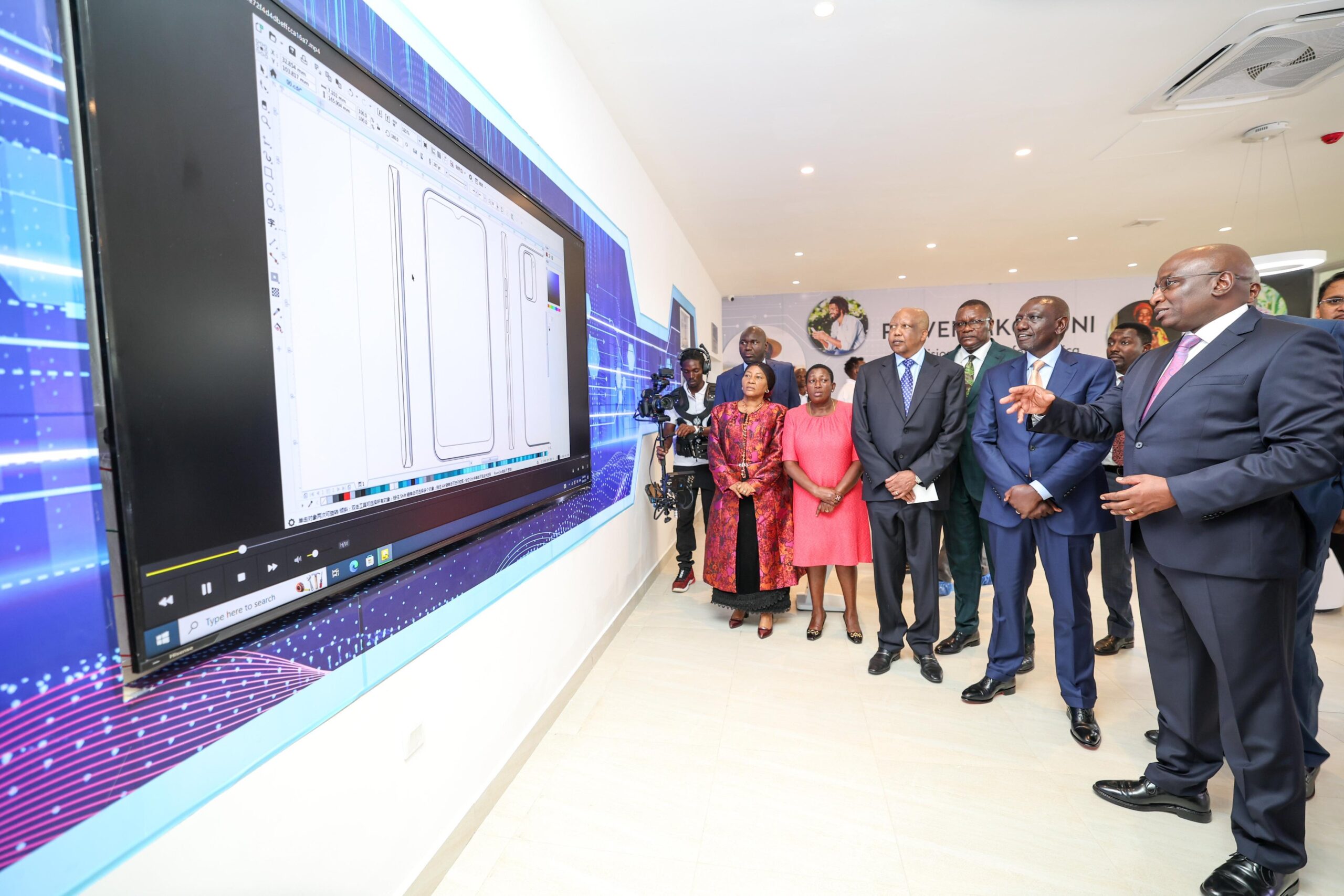Kenyan telecommunications companies on Monday opened the first local phone assembly plant in partnership with international device manufacturers.
The Athi River-based East Africa Device Assembly Kenya Limited (EADAK) follows the government’s promise to establish a local smartphone assembly with a capacity to produce up to 3 million units annually.
EADAK’s chairman Joshua Chepkwony told journalists during the launch that the devices will retail from Ksh.7,499.
They will be available countrywide at Faiba shops and dealer stores as well as Safaricom shops and the Masoko online platform.
The anchor mobile phone devices at launch will be the 4G-enabled Neon 5-inch “Smarta” and 6-and-half-inch “Ultra”, with EADAK seeking to unveil a locally assembled tablet in the coming months.
It is projected that the factory will generate between 300 and 500 direct jobs.
“The launch of EADAK reaffirms our belief in the power of connectivity to transform lives and drive economic progress. This partnership underscores our relentless pursuit to expand 4G access and empower Kenyans through affordable, high-quality smartphones, create employment opportunities and grow our economy,” Peter Ndegwa, the CEO of Safaricom said.
In May, Kenyan telcos had projected an annual output of between 1.2 to 1.8 million devices and the cheapest device was expected to retail at Ksh.11,500.
This was more than double what President William Ruto had promised last year when he said the government is working on a plan to have locally manufactured mobile phones retailing at below Ksh.5,000 (about 50 USD at the time).
At the time, Safaricom’s Head of Ventures Karanja Gichiri, who is also the EADAK Project Lead, blamed the prices on the new taxes on mobile phones introduced in the Finance Act, 2023, saying despite their efforts to source for an affordable chip supplier, the levies pushed the price up 40 per cent.
“If we were to work towards the vision of a 50-dollar phone, we would need to address import duty, excise duty and output VAT. The final cost of a phone would be between 6,500 to 7,000 shillings at most,” Gichiri told the parliamentary Finance and Planning committee on May 24.
By Fred Azelwa.
